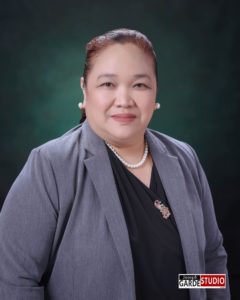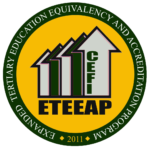BACHELOR OF SCIENCE IN NURSING

It is my pleasure to welcome you all to CEFI, College of Nursing.
Over the years, the department continuously commenced on achieving its goal to provide opportunities for the students’ growth and development that are vital for their future career directions, instill the value of compassion, caring, patience, sensitivity and be critical thinkers who are competent in health care delivery, communication, and research. The CEFI College of Nursing has premiered its academic program to be responsive to the needs of the students. The faculty are highly equipped with knowledge, and skills, and are dedicated to students’ success aiming to develop quality nursing graduates who are globally competitive in executing their role as a healthcare provider.
We are also very proud of our alumni and the learning opportunities they acquired from the school which brought a huge impact as they progressed on their chosen fields of nursing, whether internationally or locally.
On behalf of the faculty, students and alumni, I welcome you all to CEFI, College of Nursing.
Dr. Wilma O. Rivadenera
Dean, College of Health Sciences
Contact us at
Email Address:
Telephone Number:
(042) 710-2514
Mobile Numbers:
Smart – 09618136114, 09618136111
Globe – 09159703071
Course Prospectus:
ACTIVITIES
"CEFIzen Globally Navigating the Challenges in the Nursing Profession"
-March 1, 2023
BSN 3 General Orientation at Lucena United Doctors Hospital and Medical Center
-August 23, 2022
Clinical Duty to different Hospitals in Lucena City
-August 27, 2022
OVERVIEW OF THE DEPARTMENT
VISION
The College of Nursing envisions itself to be the center of learning in nursing education coupled with excellence in research and community service.
MISSION
The College of Nursing is committed to the holistic development of nursing students through a broad general education program and consistently updated nursing curriculum for responsible performance as citizens of the Filipino society, country, and global community.
GOALS
To meet its vision-mission, the college’s goals are:-
- To develop nurses who exemplify dignity and integrity through adherence to truth and righteousness;
- To impart knowledge and skills in the nursing process that are essential in becoming critical thinkers who are also competent in health care delivery, communication and research;
- To instill in the students the value of compassion, caring, patience and sensitivity to the needs of every individual, and;
- To provide opportunities for the students’ growth and development vital in their future career direction (i.e. teaching, hospital work, community service or research).
COLLEGE OF NURSING LOGO:

The nursing logo has two colors – green and gold. Green symbolizes preservation of life while gold depicts excellence in all school’s goals and objectives.
Encircling all nursing symbols (hands, lamp, cap, caduceus) is the institution itself. It encompasses the knowledge, skills and attitude deeply rooted in the teachings of the school, via its responsive and relevant programs.
The hands encompass SCHOLARSHIP. They are used to bring comfort to the needy. They depict compassion and competence in all nursing functions.
The nurse’s lamp depicts SERVICE. The light is a sign of dedication and commitment to all nursing endeavors. It is used to brighten patients’ lives –every man, woman, and child in her / his care.
The caduceus exemplifies the effective participation of the nurse in the medical team. It reflects achievements and opportunities for the nurse’s holistic growth and development.
BSN Curriculum
The BSN curriculum is a competency based curriculum whereby the knowledge, skills and attitudes of students are developed and enriched. The curriculum contents are relevant and responsive to the needs of students and their clientele. The BSN is a four-year program consisting of general education and professional courses. Professional courses begin in the first year and threads through the development of competencies up to the fourth year level. The program provides an intensive nursing practicum that will refine clinical skills from the first year level to ensure basic clinical competencies required of a beginning nurse practitioner (CHED Memo no. 14, series of 2009).
Based on the guidelines for the implementation of CHED Memo no. 15, series of 2017, the curriculum implements the “shift from competency based standards to outcomes-based education.
The BSN program aims to produce a fully functioning nurse who, upon completion of the program, demonstrates beginning professional competencies and shall continue to assume responsibility for professional development and utilizes research findings in the practice of the profession.
The Key Areas of Responsibility for which a nurse should demonstrate competence are: 1) Safe and quality nursing care, 2) Management of resources and environment, 3) Health education, 4) Legal responsibility, 5) Ethico-moral responsibility, 6) Personal and Professional Development, 7) Quality improvement, 8) Research, 9) Record Management, 10) Communication, and 11) Collaboration and Teamwork.
At the end of the first year, the students shall have acquired an understanding and awareness of themselves as an individual and as a member of the family, the community, and the world with emphasis on personal, societal and professional values, responsibilities, rights, and an awareness of physical, social and cultural milieu.
At the end of the second year, the student shall have acquired the holistic understanding of the human person as a bio-psycho-cultural being focusing on the concept of health and illness as it is related to the care of the mother and child in varied settings. The student shall be able to demonstrate the competencies under the 11 key areas of responsibility.
At the end of the third year, given actual clients / situations with various physiologic and psychosocial alterations, the student shall be able to demonstrate the competencies under the 11 key areas of responsibility.
At the end of the fourth year, given actual clients / situations, the student shall be able to demonstrate competencies in all the key areas of responsibility.
*The Caregiving program is integrated in the BSN I and II of the curriculum. The Medical Transcription is integrated in the BSN III program. Nursing students will have the opportunity to take the NC II examination after having completed the requirements.
PROGRAM EDUCATIONAL OBJECTIVES
The College of Nursing of Calayan Educational Foundation, Inc. is dedicated to educate students who, within a few years of graduation:-
- are gainfully employed in various healthcare facilities;
- can apply acquired knowledge and skills in various areas of specialization utilizing the nursing process;
- are engaged in evidence-based practice researches for the advancement of nursing profession;
- can speak with ease and confidence in organizational communication;
- are engaged in various trainings, seminars, conferences and graduate programs as a tool for career advancement;
- and can demonstrate safe nursing practice with social responsibility, just and humane regards to people and commitment to service.
PROGRAM OUTCOMES
-
- Apply knowledge of physical, social natural and health science and humanities in the practice of nursing.
- Provide safe, appropriate and holistic care to individuals, families, population, group and community utilizing nursing process.
- Apply guidelines and principles of evidence-based practice in the delivery of care.
- Practice nursing in accordance with existing laws, legal, ethics and moral principles.
- Communicate effectively in speaking, writing and presenting culturally-appropriate language.
- Document to include reporting up-to-date client care accurately and comprehensively.
- Work effectively in collaboration with inter-, intra- and multidisciplinary and multi-cultural teams.
- Practice beginning management and leadership skills in the delivery of client care using a systems approach.
- Conduct research with an experienced researcher.
- Engage in lifelong learning with a passion to keep current with national and global developments in general, and nursing and health developments in particular.
- Demonstrate responsible citizenship and pride of being a Filipino.
- Apply techno-intelligent care systems and processes in health care delivery.
- Adopt the nursing core values in the practice of the profession.
- Apply entrepreneurial skills in the delivery of care.
HISTORY OF THE DEPARTMENT
Calayan Educational Foundation, Inc. is one of the private educational institutions of Lucena City. It is a non-stock, non profit institution of higher learning that was founded by Drs. Emeterio and Josefina del Villar Calayan in 1973. It pioneered para-medical courses in Quezon Province, starting with the Midwifery Program in 1973. The Graduate in Nursing (GN) program opened in 1974. Eventually, the Bachelor of Science in Nursing was granted government recognition in 1985.
In 2009, the College of Nursing was granted Level I Accreditation by the Philippine Association of Colleges and Universities Commission on Accreditation (PACUCOA). In 2012, it was granted Level II Re-Accreditation.














